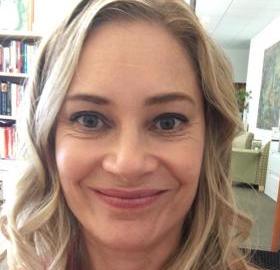Tasha R. Howe
Professor
Dr. Howe is on leave for the 24/25 Academic Year.
Dr. Howe completed her undergraduate work at U.C. Santa Barbara, and her graduate work at U.C. Riverside, in the area of developmental psychology. She completed her master's and doctoral work on abused children's social and emotional development. Her work with abused children led her to delve deeply into the theory and research of parent-child attachment. She began to recognize that violence is not just a problem with individual families, but that societies vary in family violence rates. In addition to adhering strongly to attachment theory, she formed theoretical alliances with Vygotsky's sociocultural theory (recognizing the importance of more advanced members of one's culture for the individual's cognitive growth), and Bronfenbrenner's Bioecological Theory (showing how each individual exists within multiple systems of influence, from families, to neighborhoods, to social systems, to cultures).
When Tasha finished her Ph.D., she went on to an NIMH-sponsored postdoctoral program in Developmental Psychopathology at Vanderbilt University. There she completed a study on the impact of the timing of abuse on children's externalizing (e.g. aggression) and internalizing (e.g. depression) problems.
Dr. Howe's first faculty position was at a small, private liberal arts college in Kentucky, where she specialized in all forms of human development, both normal and atypical. She came to Humboldt in 2002. She teaches most of the courses in the department related to child and family development, including human development, developmental psychopathology, family relations in contemporary society (for which she wrote the textbook), and family violence.
As a developmental psychopathologist, Dr. Howe recognizes the importance of studying both normal developmental milestones and atypical transformations of children's functioning together. The field of developmental psychopathology works to restore functioning along children's normal developmental trajectories in order to optimize outcomes. Treatments focusing on attachment and emotion regulation are particularly important in that the ultimate goal is to help individuals regulate their neuroendocrine functioning and modulate HPA-Axis dysregulation in order to function happily and peacefully in social and emotional contexts. Developmental psychopathology and violence prevention within the family and across the globe are Dr. Howe's two research and teaching passions.
Tasha loves traveling around the world. In 2014 she was a Fulbright Scholar to Croatia where she worked on child abuse prevention. She taught at the University of Zagreb (Filozofski Fakultet) and trained 75 social welfare professionals on the ACT Raising Safe Kids violence prevention parenting curriculum. She also presented at many conferences and gave lectures on the neuroscience of trauma and the impact of stress on children’s brain development.
In 2008 Dr. Howe was a Fulbright Scholar to the island nation of Cyprus where she worked with both Greek and Turkish Cypriots on issues related to child maltreatment and violence prevention. This included teaching undergraduate and graduate courses in both communities (Near East University and the European University of Cyprus), speaking at conferences in Cyprus and Athens, Greece, and training Greek Cypriot social welfare professionals on the skills of early violence prevention. She also did lectures on the effects of media violence on children’s socioemotional and brain development.
Here at home, Dr. Howe is always interested in community-based research, working with various social service and child health and development agencies on violence prevention and community and family violence issues. She supervises student research on any topic related to child development or family relations/violence issues. She has also conducted research on, written about, and published on the science of teaching (pedagogy). She was a 2004 Service-Learning Fellow at Humboldt, illustrating her commitment to connecting students with children, families, and organizations in the local community. She thinks "town-gown" connections are vital for violence prevention and helping children reach their developmental potential. In 2010 Dr. Howe was recognized with the American Psychological Association's Award for "Effectively Infusing Diversity into Teaching," which was gratifying to her as examining families within a cultural-contextual framework is vitally important to her. Dr. Howe recently recieved a certificate of appreciation for exemplary contributions to the field of Children's Mental Health in Humboldt County. She was honored at the Children's Mental Health Summit on September 30, 2016.
Tasha is also a nationally certified trainer for the ACT (Adults and Children Together) Against Violence Raising Safe Kids program developed by the American Psychological Association. In this regard, she and her students have published several program evaluations. To learn more about this program, see www.apa.org/act/.
Dr. Howe has a dynamic, discussion-based teaching style. She loves to have students actively involved in all class periods. She likes to have guest speakers from the community to create a town-gown connection and help students see possible volunteer and career paths for themselves. She teaches classes related to developmental psychology and family relationships (e.g., human development, developmental psychopathology, family relations). She uses a bioecological framework for understanding human development, examining everything going out from the neuron and in from the culture as intersectional influences.


